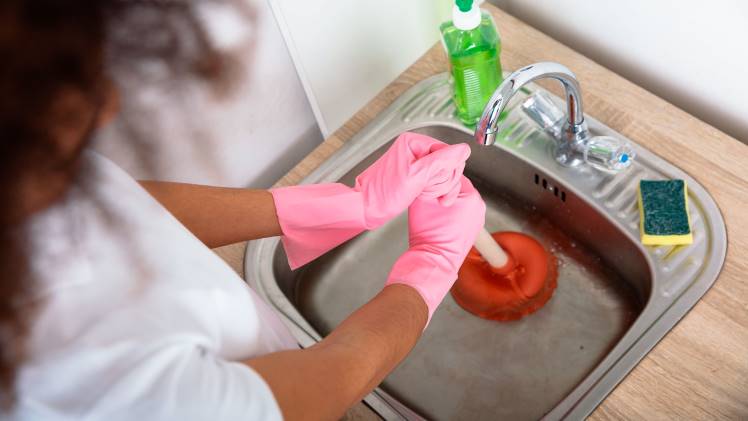Keeping your drains clear can prevent the need for a plumber and can also save you money. It is very easy to prevent drain clogs by being careful about what you put down your sink or toilet drain. If you cannot clear a drain that is blocked, you can hire a professional plumber who is experienced and can clear a blocked drain in Canberra.
Avoid putting down items that don’t break down, such as grease, fat or oil. Rice, pasta and bread should also be avoided as they swell when in contact with water creating blockages.
Leaves and Debris
The changing of seasons is a beautiful time of year, but it can also mean leaves falling from trees and blowing all over your home, including the outside drains. This is one of the leading causes of clogged outdoor drains, so you’ll want to check your drains frequently and clean them as needed.
You’ll want to wear gloves when removing anything stuck in the drain, and a wet vac or pipe brush can help with the rest. For a more permanent solution, consider purchasing an outside drain cover for your property.
It will help to keep most leaves, twigs and debris from entering your drain. You can even use a grate hook to get more stubborn material out of the drain. Food waste is another common cause of blocked drains and can be easily avoided by using a garbage disposal unit or throwing food scraps into the bin. You can also prevent this by buying or making a sink strainer which will trap food particles before they enter the drain.
Food scraps are the number one cause of clogged kitchen drains. Avoid washing grease down the drain, coffee grounds, egg shells and potato peels. These foods are best thrown in the bin.
Wipes and feminine products (such as cotton buds, tampons and pads) are also notorious for causing drain blockages. They may seem harmless enough to flush down the toilet, but they don’t degrade and can confound a slight blockage into a severe one. These items should always be disposed of in the bin.
A homemade remedy that works just as well as commercial chemical cleaners is to pour a cup of baking soda followed by a cup of vinegar down your drain. This solution will react with the clog and break it up, leaving your drain clear and smelling fresh! This is an effective, safe and cheap way to unblock your drain. Also try pouring boiling water down your drains on a weekly basis to keep them clean and prevent clogs.
Hair
Whether from pets or people, hair is one of the most common reasons for blocked drains. Individual hair strands may seem harmless, but over time they can build up and form a solid clog.
A cheap, easy solution for this is to use a mesh screen that fits over your bathtub or shower drain. These screens can trap hair, soap scum, and other debris from entering your pipes. Just remember to empty and clean these screens on a regular basis.
Another easy, natural way to tackle a hair-related clog is to pour baking soda and vinegar down the drain. This combination will dissolve most hair clogs, and the vinegar will help break down any remaining soap scum or grease. If you have a particularly stubborn clog, try fashioning a hook out of a wire, like from a coat hanger, and fish it down the drain. If that doesn’t work, try a plunger or strong chemical drain cleaner.
Toilet Paper
Modern toilet paper is designed to dissolve in water, so it doesn’t clog your drains when flushed. However, the thickness of your TP and the amount you use can still cause an issue. Thicker, three-ply varieties may not break up and dissolve properly, causing it to build up in your pipes and create a gummy clog.
Some items that people throw down the drain are not meant to be flushed, such as Q-tips, cotton balls, and sanitary products. These non-flushable items are likely to swell up and block the drain – even if they are labeled as “flushable.”
Dissolving a clog can be easier than you think, simply pour a cup of salt down your drain. Let it sink into the clog for about 30 minutes, then flush the drain. This will allow the dissolved salt to clear away your clog. You can also try using a flange plunger or a drain snake to break up and remove the clog.

